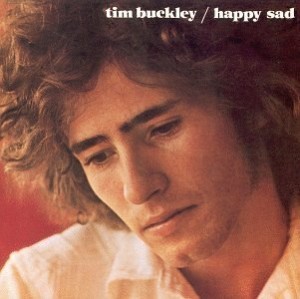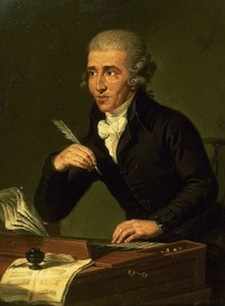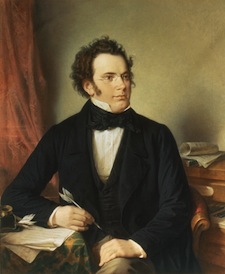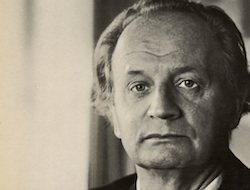Been a busy night working on some recordings for school, but I also managed to rip quite a bit. In the stack was a Schubert symphony box-set (Mira’s pick) with Harnoncourt conducting, some Brahms chamber music, early Steve Reich works, the first Billy Bragg and Wilco album and Tim Buckley’s ‘Happy Sad’.
So – very little here that is not noteworthy, but the Tim Buckley album is particularily special. It is one of the albums I remember from growing up (and definitely mellower music), but it is also an album I kept listening to as my musical tastes started to drift more and more from my parents’ musical tastes (and I probably kept listening to it as their drifted from mine!). In high school, it was a quiet favorite of mine, and tracks from it wound up on many mix tapes. During my freshman year, as Tamiko and I (still friends) were coming back from a band trip to San Luis Obisopo (with a long bus ride), she and her boyfriend Matt were breaking up, and my girlfriend and I weren’t in the best of places either. As we were passing north on 101 up towards San Jose (through the area I grew up in), we were getting a sunset, and I remember telling Tamiko a few things about what I missed about living there (mostly, the fog rolling in over the hills). After a bit of time, I gave her my headphones to listen to and on the tape at the time was ‘Buzzin’ Fly’ by Tim Buckley. She cuddled up with me on my lap and listened to it. It was probably one of the most intimate moments I had ever had with anyone up to this point in my life, and it was with my best friend.
I love this song, and Tamiko and I now associate it with this moment. We were both breaking / about to be breaking up with people, and within a few weeks we ourselves would start dating. It wasn’t a great time for either of us… teenage break-ups just suck. But at this moment, we were really good friends, and we were the two that we went to for comfort. And when it comes down to it, it is that comfort and security in each other that is one of the strongest part of our relationship. The music on ‘Happy Sad’ is happy, and sad, but also lush, warm, comforting and sometimes tense. It is probably one of my favorite albums (and is also one of the more ‘out there’ Tim Buckley discs… complete with vibraphones and double bass in a quasi-jazz like setting). Pretty complex emotionally in many ways. Perhaps this is the disc all adolescents should have while they go through that confusing period of life where everything feels like so many emotions can be happening at the same time.






